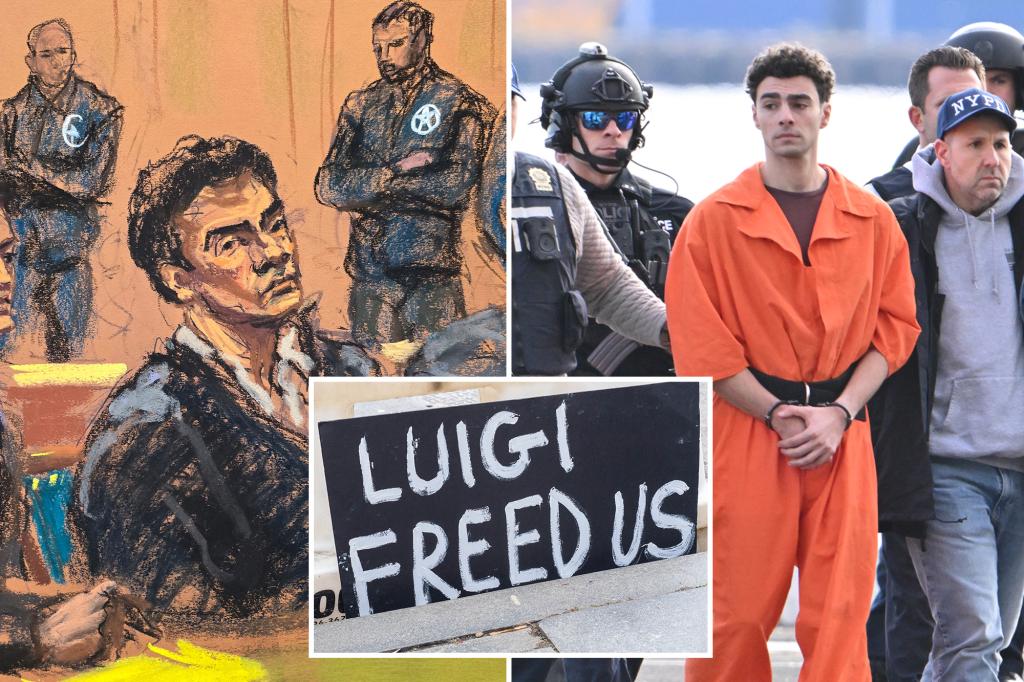Luigi Mangione, the accused assassin of UnitedHealthcare CEO Brian Thompson, faces federal charges following pressure from health insurance industry leaders who sought a strong deterrent against potential copycat crimes. While Manhattan District Attorney Alvin Bragg initially planned to prosecute Mangione, the Department of Justice intervened, filing a four-count complaint that includes the possibility of the death penalty, a leverage unavailable to state prosecutors. This swift federal action, possibly initiated from the highest levels of the DOJ, blindsided Mangione’s defense team, who learned about the charges through media reports. The federal intervention raises questions about the interplay between state and federal jurisdictions, with legal experts suggesting the DOJ aims to take the lead in this high-profile case.
The federal prosecution introduces several critical differences compared to the state case. Firstly, the federal government possesses the option of pursuing the death penalty, a significant factor influencing the severity of potential punishment. Secondly, the federal case avoids the complex “terrorism enhancement” charge pursued by Bragg, which alleges that Mangione’s act was intended to intimidate a group of people – in this case, the health insurance industry. This simplification streamlines the prosecution’s argument and avoids potential jury confusion or disagreement over the application of the terrorism statute. Finally, the federal jury pool draws from a broader geographic area, potentially mitigating any “folk hero” sentiment that might arise within a Manhattan-centric jury.
The timing of the federal intervention, just prior to Mangione’s scheduled arraignment in state court, suggests a deliberate effort by the DOJ to supersede the Manhattan DA’s office. This action signals a potential power struggle between federal and local authorities. The federal charges appear to contradict the state’s terrorism charge by focusing on the stalking of an individual rather than an attack on a group, further highlighting the jurisdictional tension. The federal complaint alleges that Mangione specifically targeted Thompson and UnitedHealthcare, meticulously planning his attack over three months, documenting his rationale in a handwritten manifesto.
Mangione’s alleged manifesto reportedly details his deep-seated resentment towards the health insurance industry, identifying UnitedHealthcare and its CEO as the embodiment of his grievances. The document, discovered upon his arrest, reportedly outlines his intention to “wack” a CEO at the conference Thompson was scheduled to attend, calling the event a “true windfall” for his plan. He allegedly wrote that UnitedHealthcare “checks every box,” explicitly stating, “The target is insurance,” and anticipating the shooting would be interpreted as an attack on the industry. These writings provide the prosecution with powerful evidence of premeditation and motive.
The shocking assassination has generated unexpected support for Mangione, with some individuals celebrating him as a twisted folk hero. This public sentiment, fueled by online memes and even public displays of support during his extradition hearing, likely contributed to the pressure on the DOJ to pursue a forceful prosecution. The health insurance industry, concerned about the potential for copycat attacks inspired by Mangione’s actions, reportedly lobbied for federal intervention, aiming to set a decisive example that would deter future violence. The case raises complex questions about the intersection of individual grievances, targeted violence, and the broader political landscape surrounding healthcare.
The federal prosecution offers several strategic advantages beyond the death penalty option. It presents a more straightforward legal case, avoids the complexities of the state’s terrorism charge, and accesses a potentially more impartial jury pool. The broader geographic representation in the federal jury might mitigate the influence of any localized sympathy or support for Mangione’s actions. The impending presidential transition also introduces a potential element of political tension between the DOJ and the Manhattan DA’s office, given the history between President-elect Trump and DA Bragg. This dynamic could further exacerbate the jurisdictional conflict and influence the trajectory of the case.
The case against Luigi Mangione remains a complex and evolving situation, characterized by jurisdictional disputes, political undertones, and public fascination with the accused. The federal intervention signifies a determined effort to prioritize a strong message of deterrence against violence targeting the healthcare industry. The contrasting approaches of the state and federal prosecutions, and the potential influence of the upcoming presidential transition, add further layers of intrigue to this high-profile case. As the legal proceedings unfold, the nation will be watching closely to see how this complex interplay of factors shapes the pursuit of justice for Brian Thompson and the implications for the future of corporate security and the healthcare industry.

